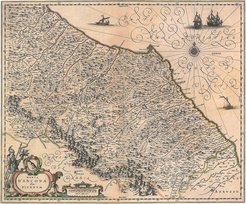Si in evidentem utilitatem. The Congregation of the Council and the praxis of the decree De rebus regularium non alienandis in the Papal States (Marche XVII c.)
PhD Project

As part of the Research group 'Normative knowledge in the praxis of the Congregation of the Council. The production of normative categories and models for the post-Tridentine world' my PhD project focuses on the complex relationship between the Congregation of the Council and local ecclesiastical institutions in the Early Modern Age. To pursue this aim, I circumscribe the field of investigation to a very specific thematic area, namely the ecclesiastical ownership of the regular clergy. The general decree de rebus regularium non alienandis (1624) in fact forbade all religious orders and congregations (mendicant and monastic orders, clerics regular etc.) to alienate the property they owned in common. The Congregation of the Council, which in the context of the Roman Curia was mainly concerned with the application, execution and authentic interpretation of the canons of the Council of Trent, also had the power to grant alienation licenses in favor of religious bodies as long as the usefulness of the transaction was evident. The legal arrangement of the dispensation-license appears to strongly characterize the workload of the Congregation throughout the 17th century. In this regard, my work focuses precisely on those dynamics of voluntary (or graziosa) jurisdiction that were established between the various ecclesiastical institutions, which on several levels were involved in these alienation procedures. Of particular interest, in fact, is the analysis from a juridical-historical perspective of the complex intertwining of the jurisdictional competences of the religious orders, the congregation of the Council and the diocesan bishops. I will also give particular emphasis to the legal institution of apostolic delegation, which turns out to be an instrument not only abundantly used in these contexts, but also responsible for a discrete complementarity between the different institutions of the Catholic Church. I will focus on describing the procedural practices, as well as the role and peculiarities of the numerous actors involved, such as superiors of convents or monasteries, the Superiors general of religious orders, the Procurators general at the Roman curia, the officials of episcopal tribunals etc. From an investigative point of view, this work uses sources from central and local archives. In particular, I will connect the typical sources of the Congregation of the Council´s archives, such as Positiones, Libri Decretorum, and Libri Litterarum, with the documentation preserved in the general archives of the Orders, in the monastery archives, and in diocesan archives. The historical-geographical context that forms the backdrop to this work is the territory of the Marche in the 17th century; this province of the papal state, characterized by a particular administrative and ecclesiastical fragmentation, is still neglected from a historiographical point of view with regard to the center-periphery dynamics of ecclesiastical institutions.
